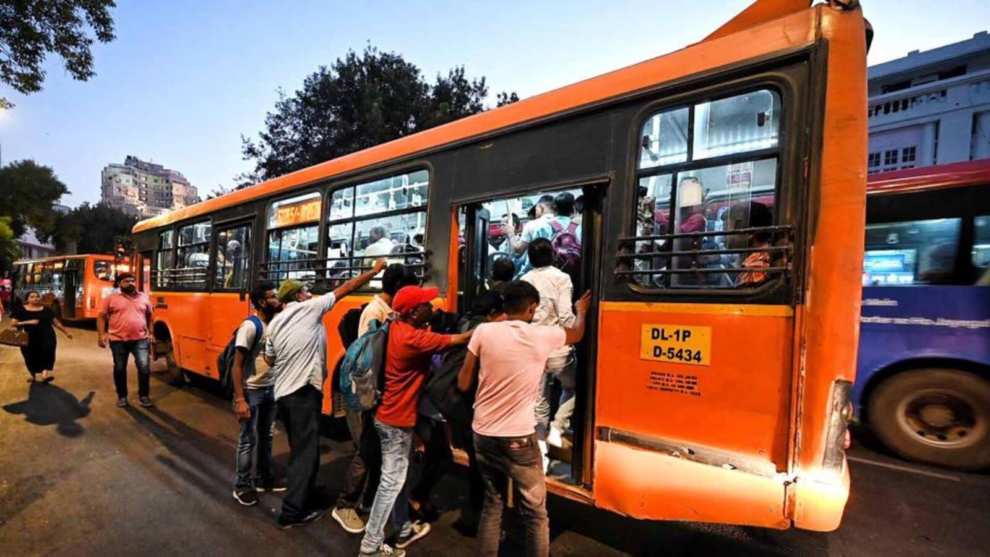It is likely fill the gap between the demand and supply for premium bus transport services in Delhi by engaging private operators and aggregators. The Delhi government has notified the premium bus aggregator scheme paving the way for people to avail “cab-like” services on buses, wherein they can reserve seats in premium air-conditioned buses remotely through mobile apps, according to officials aware of the matter.
The new policy — Delhi Motor Vehicles Licensing of Aggregator (Premium Buses) Scheme, 2023 — was notified on Monday and would likely fill the gap between the demand and supply for premium bus transport services in Delhi by engaging private operators and aggregators.
Transport officials said interested aggregators can now apply for their license by submitting details to the transport department. Once a license is granted, the aggregator will have to start their service within 90 days.
“We had received interest from four to five transporters and existing cab fleet operators. Some operators run intercity bus routes, including electric buses, who have expressed interest. All details related to the license application have been given in the notification and operators can contact the transport department,” said Ashish Kundra, transport secretary and commissioner.
The scheme envisions a premium city bus service that will require passengers to book their seats via apps, have no standing passengers, and have fares higher than other buses, including those owned or operated by the state government’s Delhi Transport Corporation (DTC). The buses will be equipped with key safety features such as CCTV, GPS, and panic buttons, among others. They will also be Wi-Fi-enabled.
The bus operators — each aggregator will need to have a minimum of 25 buses in the fleet — will be allowed to charge a higher bus fare during peak hours. The rule mandating that these buses cannot pick up passengers who do not have a booking is designed to ensure that they do not lapse into a typical public bus service and restrict the experience quality of the premium bus service.
Introducing the scheme in May this year, chief minister Arvind Kejriwal said that the objective of this policy was to help reduce intra-city trips in private cars by making a premium bus service to regular car users available.
“I hope that this will bring much change in Delhi’s public transport system and people will switch from their cars and two-wheelers to public buses,” Kejriwal posted on X on Tuesday.
Initially, operators will have to pay a license fee of ₹5 lakh for five years that will be renewed for five years for a nominal ₹2,500. There will be an additional security deposit of ₹1 lakh and charges for using the DTC bus queue shelters for pick and drop of passengers. No license fee will be levied on electric buses.
To be eligible for a license, applicants must have a minimum of three years of experience in operating and managing vehicles in public or shared transportation. They are required to maintain a fleet of a minimum of 100 passenger buses annually, or 1,000 passenger cars annually, or a mixed fleet comprising a minimum of 100 buses and calculated at 10 cars equivalent to one bus.
Applicants also need to adhere to all applicable conditions related to the use of passenger vehicles, similar to contract carriage buses, transport officials said. Transport minister Kailash Gahlot said, “With the introduction of this scheme, we are not just connecting destinations, we are paving the way to a greener and smarter future. Our focus is to offer the best quality service while safeguarding the environment.”
Experts said the scheme can help reduce congestion by attracting commuters from higher income groups who travel regularly in Delhi but prefer using personal modes of transport.
“Public transport users can be classified into two categories — choice users and captive users. Those who opt for public transport by choice seek more than just basic services — they prioritise quality, comfort, and flexibility, among other factors, and are willing to pay more. Delhi’s app-based bus service is an example of a service that can attract many choice users to this system,” said Amit Bhatt, managing director (India), International Council of Clean Transport.
Source: The Hindustan Times
















